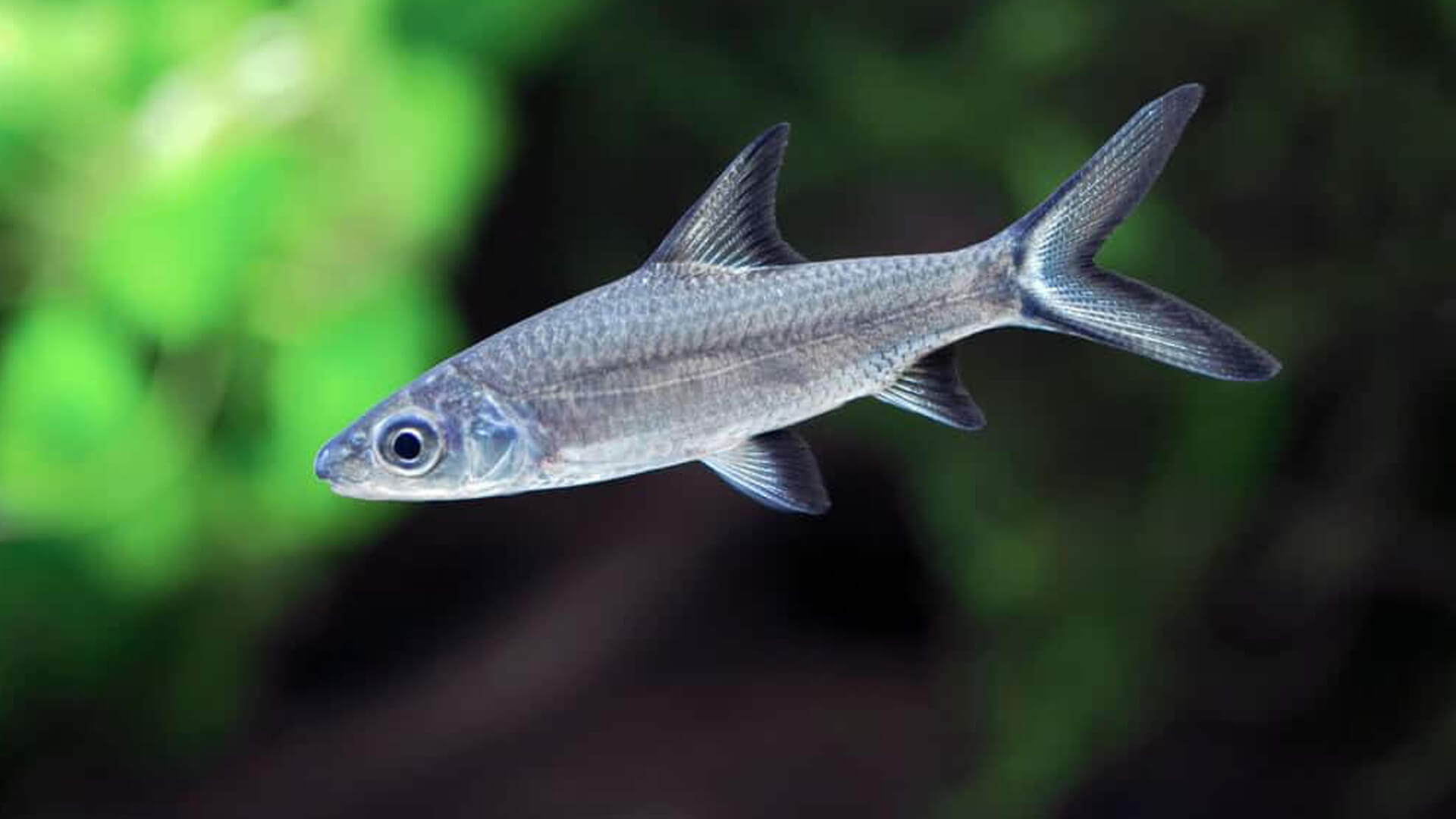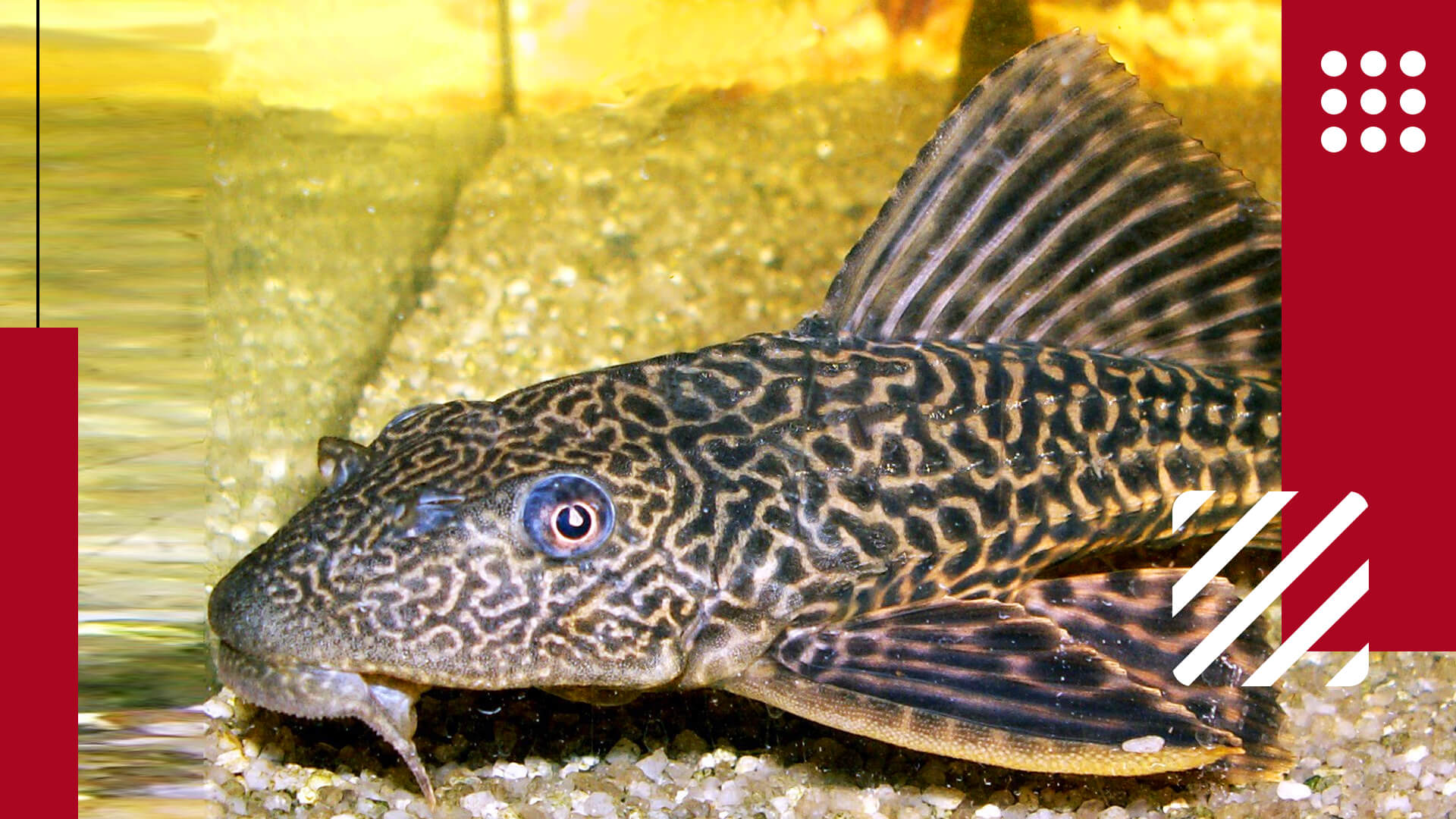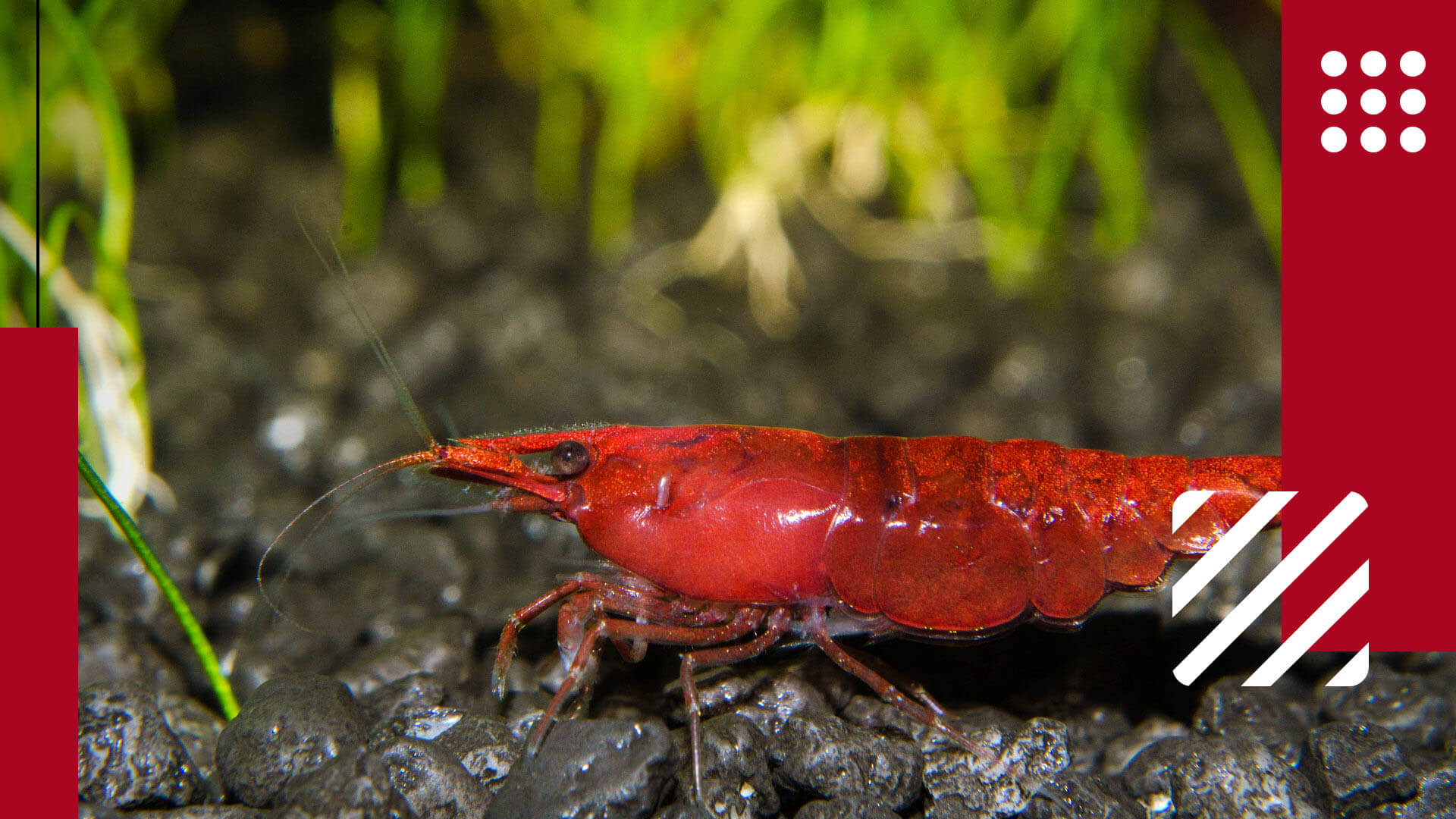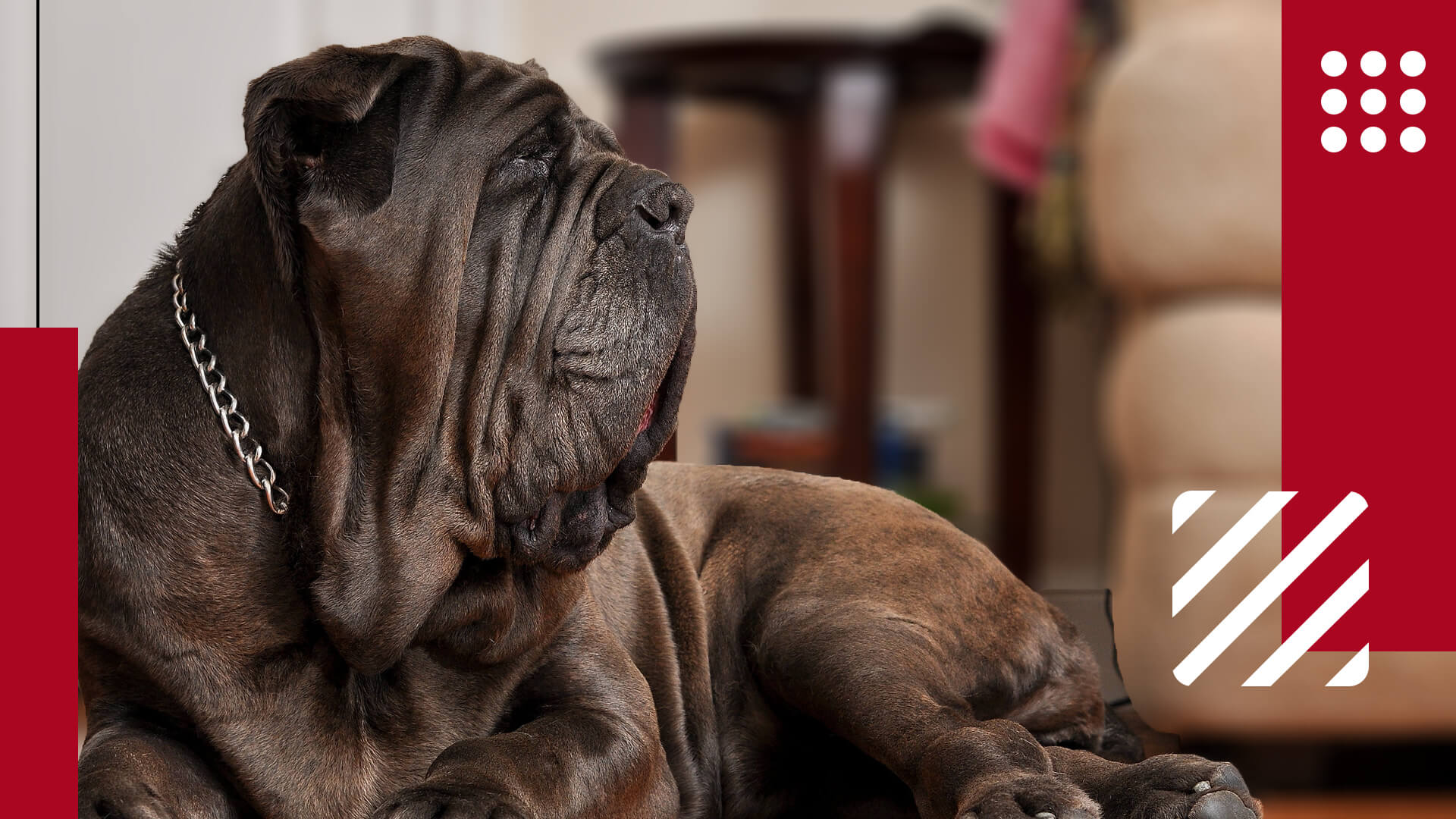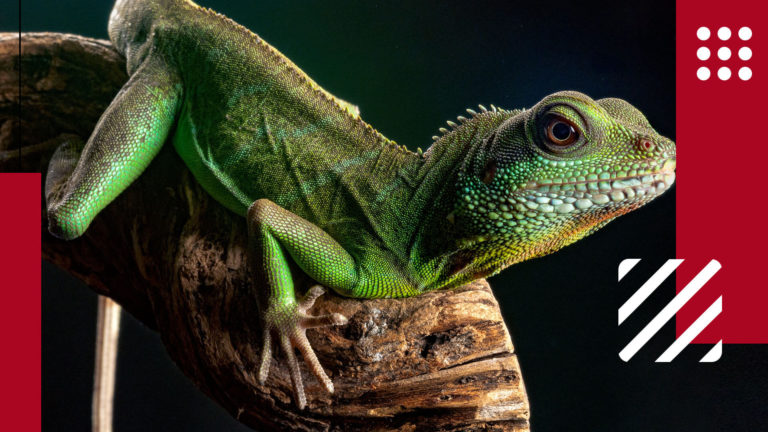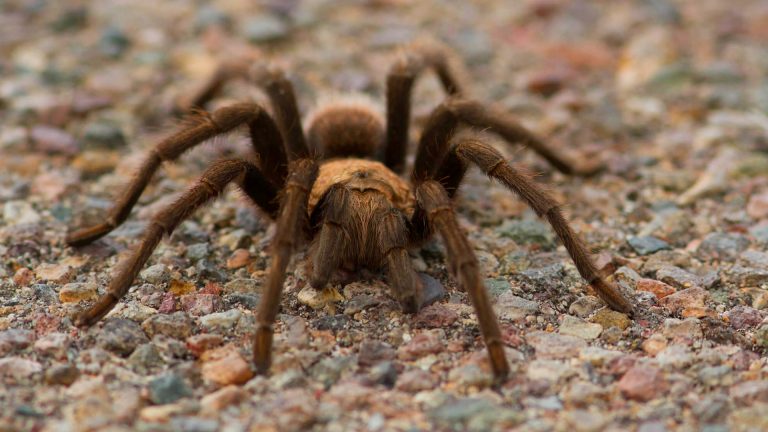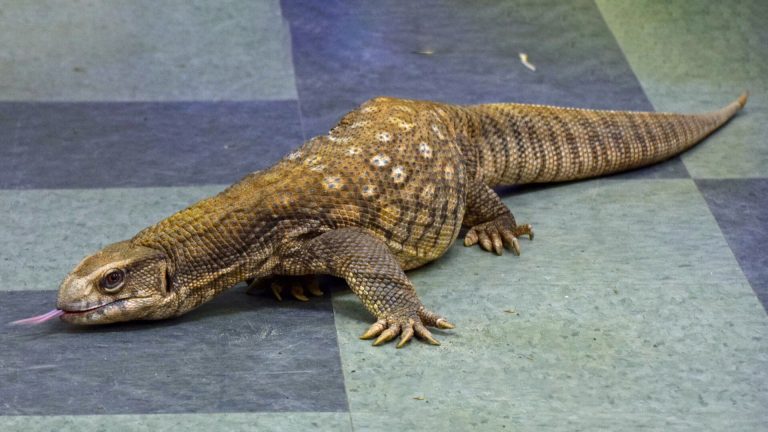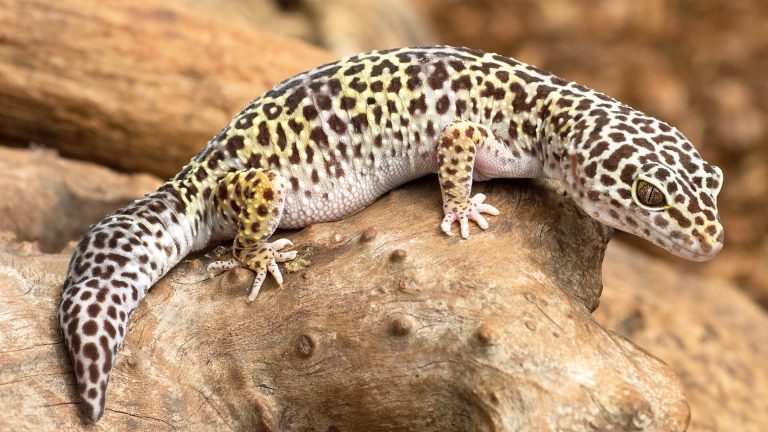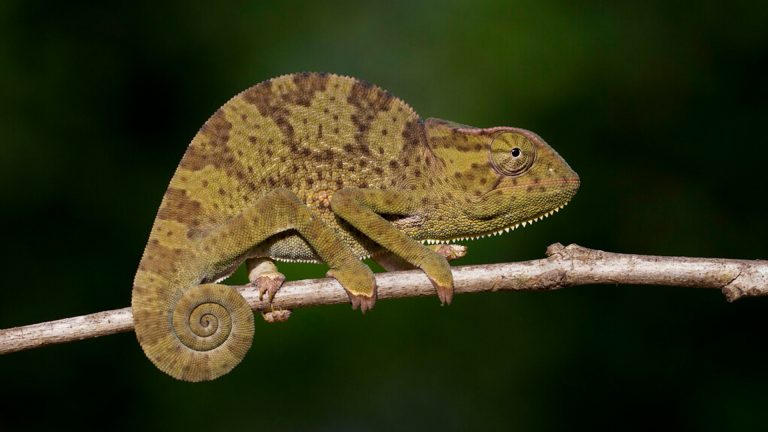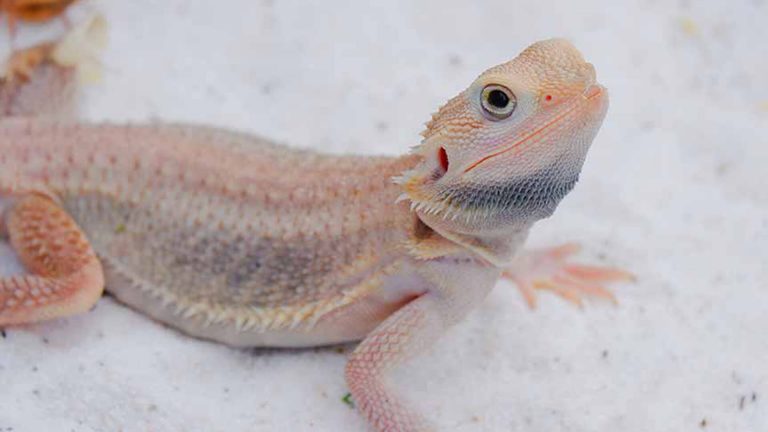Day geckos are a group of small lizards diversified into more than 60 different species. These species vary in size and appearance but most of their features are almost the same. They have a beautiful appearance and make a great addition to the home for any lizard lover. Some of the day geckos have earned considerable popularity in the recent past. However, they are a little high-maintenance. They are delicate and have strict requirements. Hence, they are not suitable for beginners. Only a person with some prior experience of keeping a reptile can keep them well. Moreover, they require daily care so it is only for the people who are willing to devote that much time.
These little lizards originally belong to the regions near the Indian Ocean mainly including Madagascar and Mauritius. They are diurnal creatures which means that they are most active during the morning and daytime. It pretty much justifies why they have been named as day geckos. If the owners want to catch them playing around, they can easily watch them during the daytime. However, it's only good till they are being seen from a distance. It is advised not to pick them or hold them up. They should be handled only when it's extremely necessary. Similarly, there are other things the owner needs to know before keeping a day gecko as a pet. And, this article covers all the information regarding the same.
Distinctive Features of Day Gecko
| Scientific Name | Phelsuma spp. |
| Lifespan | Up to 20 years |
| Color | Brightly colored with various patterns (species-dependent) |
| Size | Average size - 10 inches, 2.6 inches (smallest) to 11.8 inches (largest) |
| Health Risk | Low |
| Enclosure Size | Minimum 20-gallon terrarium |
| Temperature | 80-85°F (27-29°C) |
| Humidity | 60-70% |
| Feeding | Insects, fruit, and nectar |
| Handling | Limited, best observed rather than handled |
| Unique Trait | Sticky toe pads and vibrant coloration |
| Famous For | Their diurnal nature and vivid appearance |
| Maintenance | High |
| Adaptability | Moderate |
| Behavior | Not recommended for young children |
| Personality | Active during the day, arboreal |
| Social | Can be kept in pairs or small groups |
Day geckos possess extraordinary beauty. Since there are more than 60 species with varying appearances, it is not possible to describe them in one frame. However, some other common features can be discussed. A few of these have been enlisted below in the table.
In addition to the basic characteristics that have been mentioned in the table, here are some other special and interesting features of day geckos.
- When day geckos are stressed out or feel threatened, they tend to drop their tails. In the wild, they do it to distract their predators and get away. Even though their tails can regenerate, they should never be pushed to this point at least while in captivity.
- Day geckos generally don't bite. Even when they feel any potential threat approaching them, their first response is to run away. However, as their last resort, they may end up biting and their bite is not only painful but can cause injury.
- These geckos are exceptionally efficient at climbing. They have tiny filaments on their toe pads which makes them capable of sticking and climbing on almost every type of surface.
- Day geckos are always kept alone as they are territorial in nature, especially the males. However, keeping a male-female pair is also not suggested because even they can end up fighting over territories.
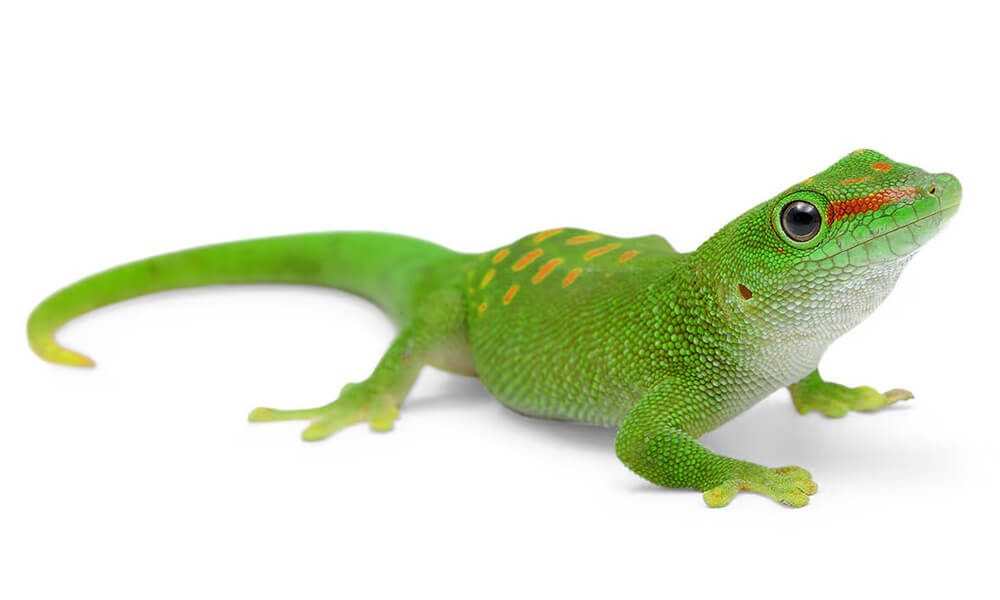
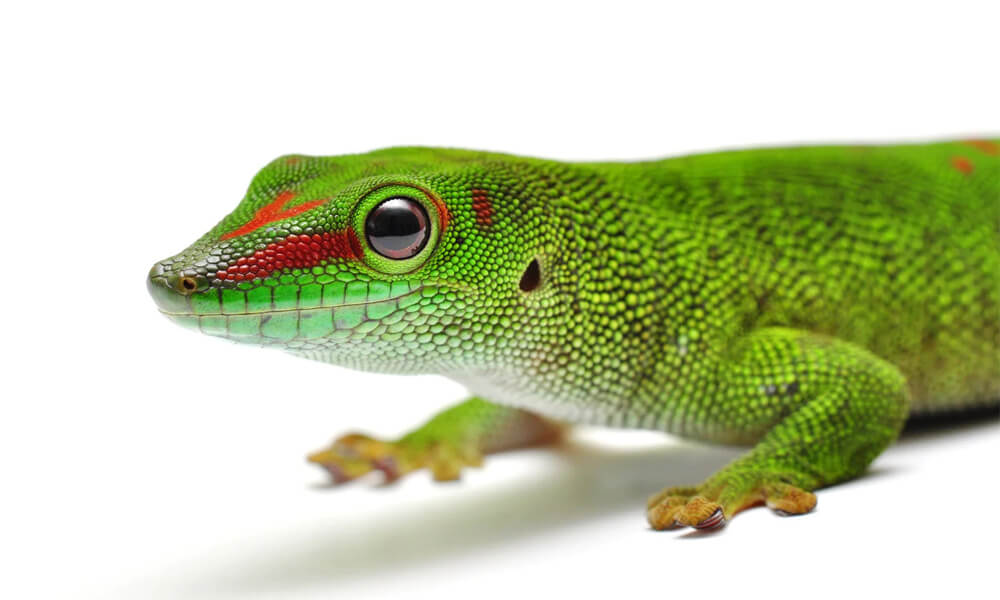
How to Take Care of a Pet Day Gecko?
As mentioned above, taking care of day geckos is not everyone's cup of tea. They are sensitive and need special care. The first thing to note is that they should never be handled unless it's very important. They don't like being held in the hands of someone. Not only do they get uncomfortable but it can also injure them if not handled carefully. It can also stress them out, impacting their mental health. Therefore, handling them should better be avoided. They may get along better once they get familiar with the owner though. Apart from that, an appropriate setup for their living and an adequate diet would be enough.
How to Setup a Tank for a Pet Day Gecko?
Since day geckos include various species, it is quite obvious that their needs will vary according to the individual species. For instance, the size of the cage or the tank would depend on the size of the particular species the person is talking about. However, there are a few things that are common to most of them. The day geckos will always require a tank whose depth is more than its width. Also, the tank should not have any exits as these geckos are extremely good at running away.
The tank should always have live tropical plants along with bamboo and branches to climb upon. Climbing is a part of their lifestyle so it is essential to give them a similar setup. Adding more plants and décor items will also provide them with more hiding spots giving them a greater sense of security. A substrate is also equally essential for these reptiles. Peat moss and organic soil can be used for the same. However, the soil must be free from any chemicals or pesticides.
The substrate also helps in maintaining the humidity of the soil which is of utmost significance to the day geckos. The humidity of the tank should always be 60-70% and this should be maintained at all times. Apart from this, the owners should ensure to put UVB lights in the tank. The pet geckos should be provided with 10-12 hours of light every day. This is not a luxury but a need for them. Coming to the temperature, it must be around 80 to 85 degrees Fahrenheit during the daytime and 72 to 77 degrees Fahrenheit during the night hours.
What to Feed a Pet Day Gecko?
Day geckos are omnivores and accept different types of food ranging from insects to fruits. For insects, one can feed them silkworms, butter worms, roaches and waxworms. For fruits, mango, papaya, and other tropical fruits can be offered. The insects should be gut-loaded with nutritious food before they turn into meals for the lizard. Sprinkling vitamin and calcium powder on both the insects and the fruits are also advised. Commercial food can also be given to fulfill their nutrition requirements but the raw diet is always preferred.
The food provided to the pet gecko should be small enough to fit into their mouths without choking. It is suggested to feed them during the morning hours considering they are most active at that time. The frequency of meals is also equally important. Normal adult day geckos will eat around 3 to 5 insects two times a week. As for breeding females and juveniles, the number of meals should be increased to 5 to 7 a week. In addition to the food, a small dish of water should also be kept in their tank at all times. Also, to maintain hygiene, any remaining food should be cleaned and the water should be changed every day.
Health Concerns for Pet Day Gecko
Day geckos belong to the category of healthy lizards provided they get all their basic necessities fulfilled in an appropriate and timely manner. However, if they do not receive proper care, they can become vulnerable to a few health problems. Most of the problems can be treated if diagnosed on time. For that, prior information is essential. To make things simplified, here are a few health issues one needs to be concerned about.
- Parasitic Infections: Day geckos are prone to parasitic infections. This occurs mostly when they are offered to eat something infected. The symptoms include vomiting, loss of weight, and unusual behavior. If any of these signs are visible, it is suggested to take them to an exotic veterinarian. Sometimes the pet gecko won't show any symptoms and suffer alone without the knowledge of the owner. That's why it is better to take precautions rather than go for treatment later.
- Partial Shedding: Similar to any other lizard, they tend to shed their skin after a while. However, if the humidity and other environmental factors are not as per their requirement, the skin won't come off properly. In this scenario, they may end up losing some fingers or toes. It is because partial shedding interrupts the blood circulation in some parts of their bodies. Therefore, it is essential to keep a check on them during their shedding period.
- Metabolic Diseases: Metabolic diseases can also severely affect the day geckos. This usually happens as a result of a lack of vitamin D or calcium. If not managed and treated on time, it will weaken the bones. This can further lead to other deformities in their bodies. To prevent this, the owners should make sure to provide them with appropriate calcium supplements, and UVB lights to fulfill their vitamin needs.
What is it Like to Keep a Pet Day Gecko?
It cannot be denied that day geckos can be a handful at times. Moreover, they need extra care which can be a little time-consuming for the owners. However, once the owner gets accustomed to their needs, they are a pleasure to keep as pets. They are beautiful and entertaining to watch. Even though they consume extra time for care, that is all! They won't take any more of the owner's time for interaction or entertainment. They can stay happy on their own playing around the plants and branches. All in all, it will be an interesting and unique experience to keep a day gecko. Giant day geckos and gold dust day geckos are some of the most popular choices.
What People Are Reading:
Frequently Asked Questions About Day Gecko
Some of the generally asked questions about Day Gecko are answered below:
Can I handle a Day Gecko?
Handling a day gecko is suitable only for people who have prior experience in keeping a reptile as a pet. This is because a day gecko is considered to be a high-maintenance pet.
Can you have a Day Gecko as a pet?
Yes, a day gecko can be kept as a pet. However, a certain amount of prior experience is essential as they are sensitive creatures and need appropriate care to grow well.
Are day Geckos aggressive?
Day geckos are a bit territorial which can make them aggressive towards others from their own species. This is why it is always suggested to keep them alone.
How long do day Geckos live?
The day geckos live up to 10 to 20 years in captivity, depending on the individual gecko, their size, and the treatment they get.
How do you tame a Day Gecko?
Feeding them regularly and taking care of their other needs are essential for this. It is to be ensured they shouldn't be bothered unnecessarily and given enough time to get comfortable. They can be tamed this way but it is still preferable not to handle them.
Are giant Day Geckos good pets for beginners?
Giant day geckos can prove to be a very interesting pet. However, it is not recommended for beginners as day geckos need a high amount of care.

